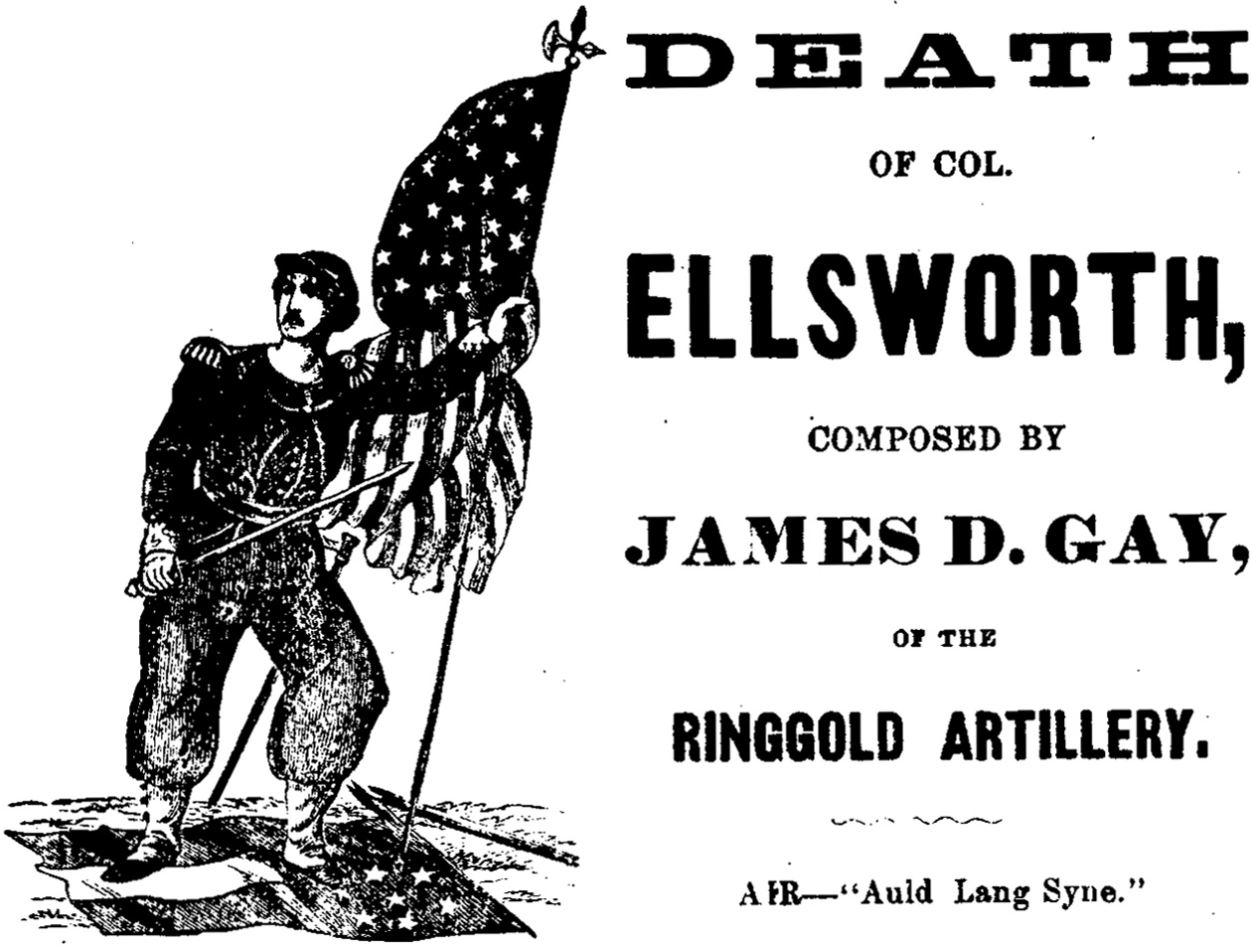Death of Col. Ellsworth
from James D. Gay, The Lost Bard of Pennsylvania by Edward Pinkowski
Keystone Folklore Quarterly,
Part 1; Vol. VIII, No. 1; Autumn 1962.

James D. Gay was, as he said a number of times, with the Ringgold Artillery in Washington, D.C., when on the night of May 23, 1861, a handsome, 23-year-old officer, Col. Ephraim E. Ellsworth, was ordered to take the First Zouaves from Camp Lincoln and to invade the city of Alexandria, Virginia. Ellsworth had become famous before the war for introducing the Zouave motif of the French colonial armies into American life. When the sun rose over Alexandria, Ellsworth saw a Confederate flag still flying on top of Marshall House and ran immediately to the roof of the tavern to remove it. One of the soldiers who accompanied him was Private Francis E. Brownell. As Col. Ellsworth was coming down from the roof with the flag in his arms, the tavern keeper, James W. Jackson, shot him. Whereupon Brownell immediately killed Jackson.
Since Ellsworth was the first person of prominence to be killed in the war, Gay decided to memorialize the occasion with a befitting ballad. He sat down on the following Sunday and composed “Death of Col. Ellsworth!” His friends crowded around him when he began to sing it, or to use his own words, “sung for the army with great success by the author.” Because of the adulation of Col. Ellsworth by the American public, “Death of Col. Ellsworth,” sung to the tune of “Auld Lang Syne,” stirred the emotions of the people considerably. On one of seven different printings of this ballad, Gay noted, “This beautiful song has been adopted by public schools throughout the Union.”